Project Overview
The Ask
Deliver the next generation of cloud-based, intelligent services connecting citizens with governments in developing countries.
Business Goals & Objectives
New Business Unit & Team
Establish new dedicated UX Design Team and practice for Digital Government GIU.
Oracle Cloud World 2024
Prepare product vision to be featured in a special demo by Larry Ellison.
Rwanda Partnership
Replace existing citizen services portal with new cloud-based application.
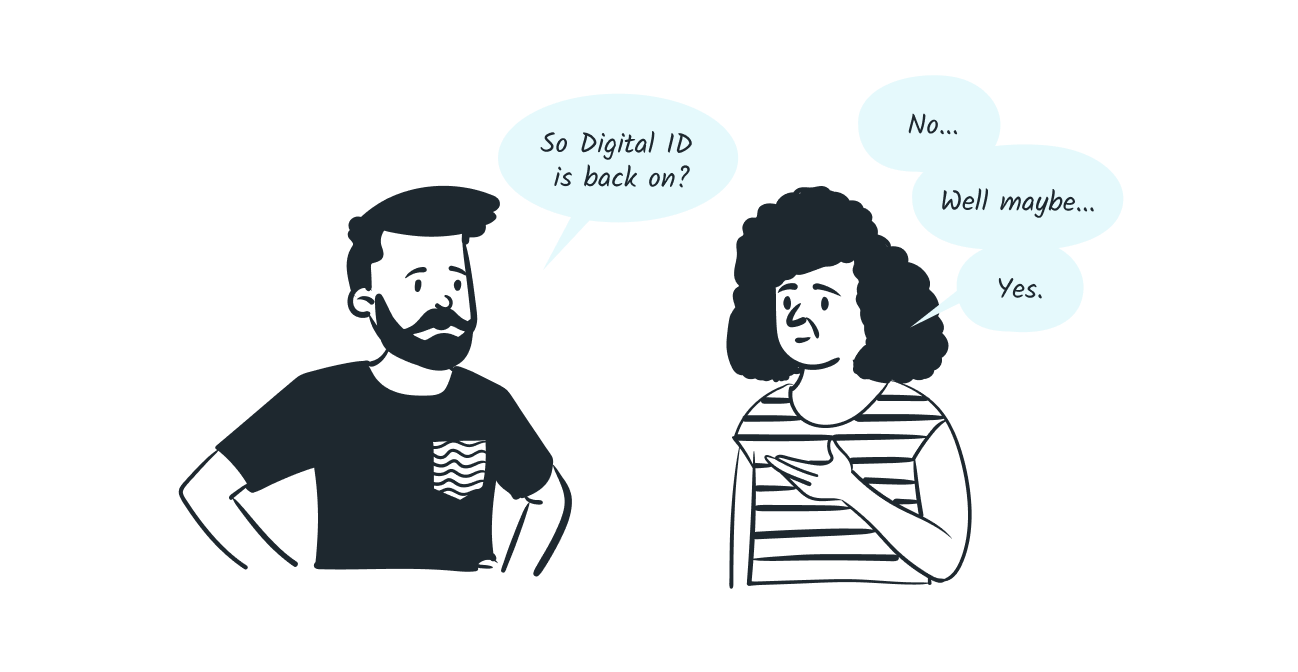
Unique Challenges
Not 'gonna lie–this was a spaghetti moment in my product design career.
- Pressure to deliver something of value in record time
- We didn’t know what we didn’t know
- Continuous pivoting and shifting of priorities
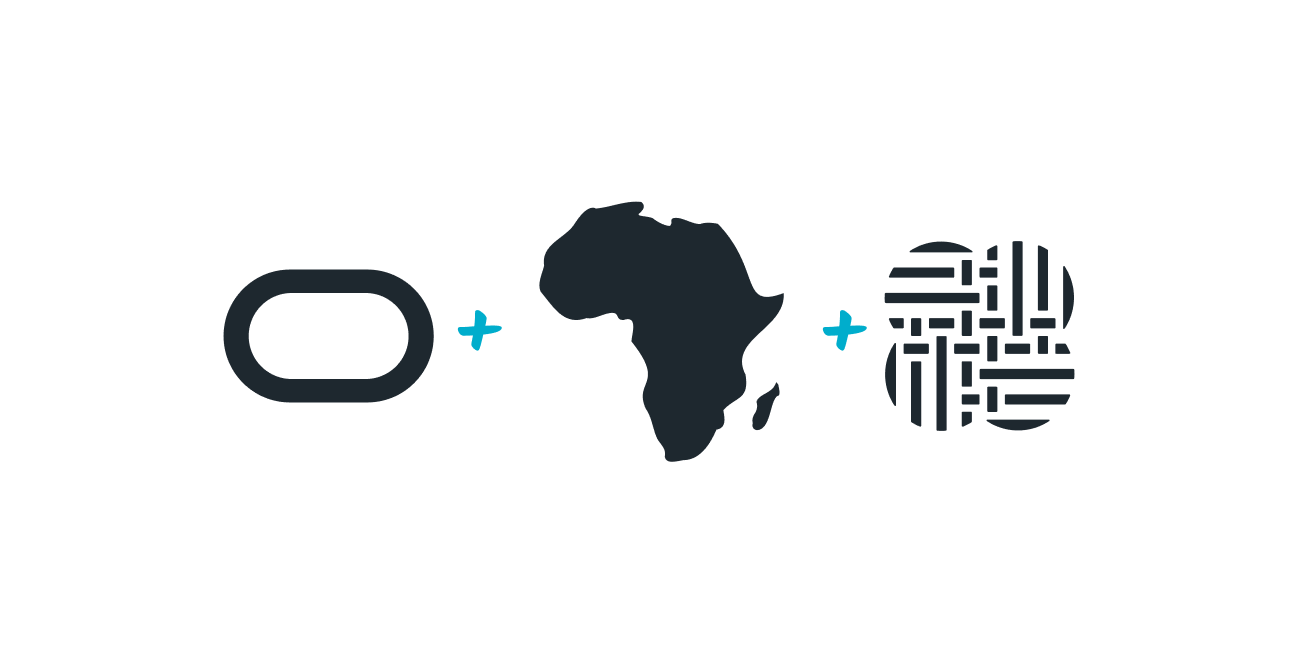
Our Approach
Learn fast, align, adapt and iterate.
- Partnered with Tony Blaire Institute to validate ideas
- Collaborated with governments in Rwanda, Kenya, and Morocco
- Baselined major product decisions with Larry Ellison frequently
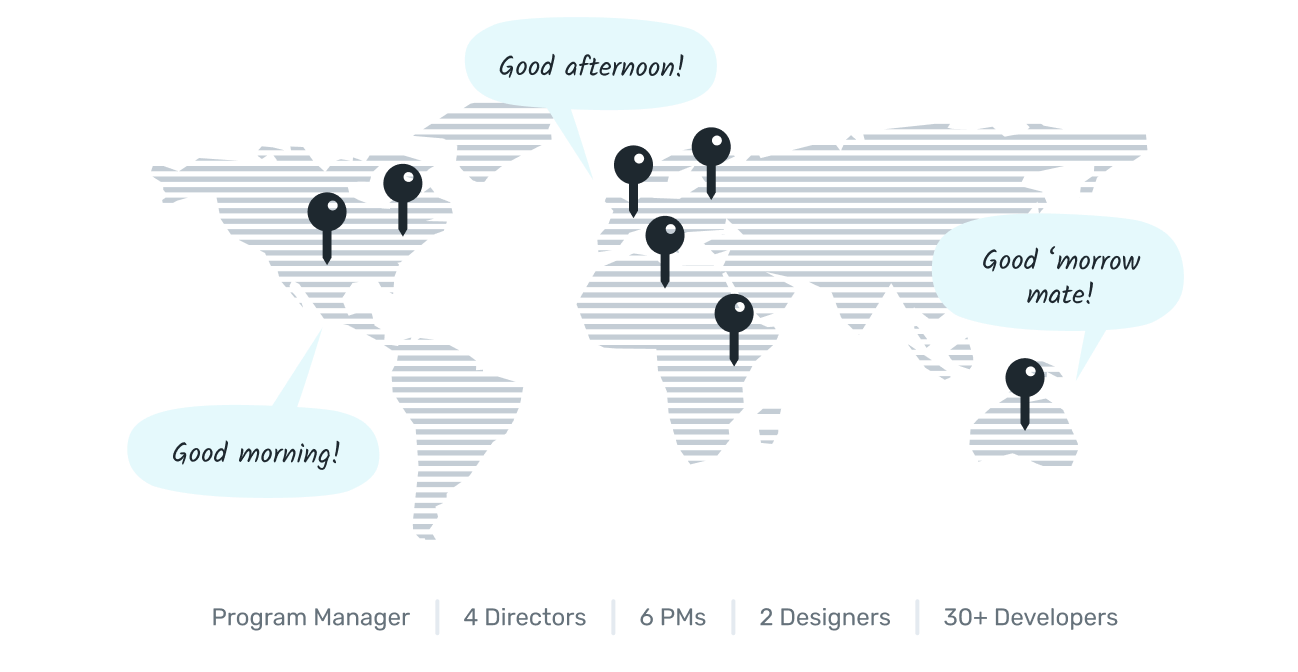
My Team & Role
UX Leadership and Contributor.
- Tasked to stand-up dedicated UX team and practice
- Directly contributed solutions and assisted other designers
- Provided UX vision, leadership, and growth plan for 2024-2025
Strategic Focus Areas
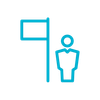
Citizen
- Secure Mobile & Desktop Experience (aka, “Citizen Portal”)
- New Digital ID Proofing & Authorization
- Access to Many Government Services
- Secure Digital Document Sharing & Storage

Government
- Intelligent Data Services
- New Digital Application Workflows
- Flexible Plug-n-Play Service Architecture
- Accessible Technological Delivery Solutions via Strategic Partnerships (Starlink + Oracle)
Key Insights
We conducted a series of interviews with our partners at the Tony Blair Institute (TBI). I helped identify research objectives and generate interview questions.
~70%
Citizens live in rural areas where internet access is limited or non-existent
50/50
Ratio of citizens owning smart phones vs feature phones (aka “flip phones”)
~90%
Have some form of ID–most common is birth certificate or national ID
low
~30-60% of population have low digital literacy in developing countries
We want technology to empower us, but not at the cost of our privacy. Our data is ours, and we should have control over how it’s used.– Citizen of Rwanda (Anonymous)
Takeaways
The Citizen Portal solution needs to:
- Be private, secure, and respect sovereignty of citizens
- Be accessible and useable by a low digital-literate population
- Support various workflows and commication channels
- Support a range of devices from low to high tech
- Be operable when off-line
User Personas
I developed user personas and user goal cards to help facilitate understanding of our users and drive product design decisions.
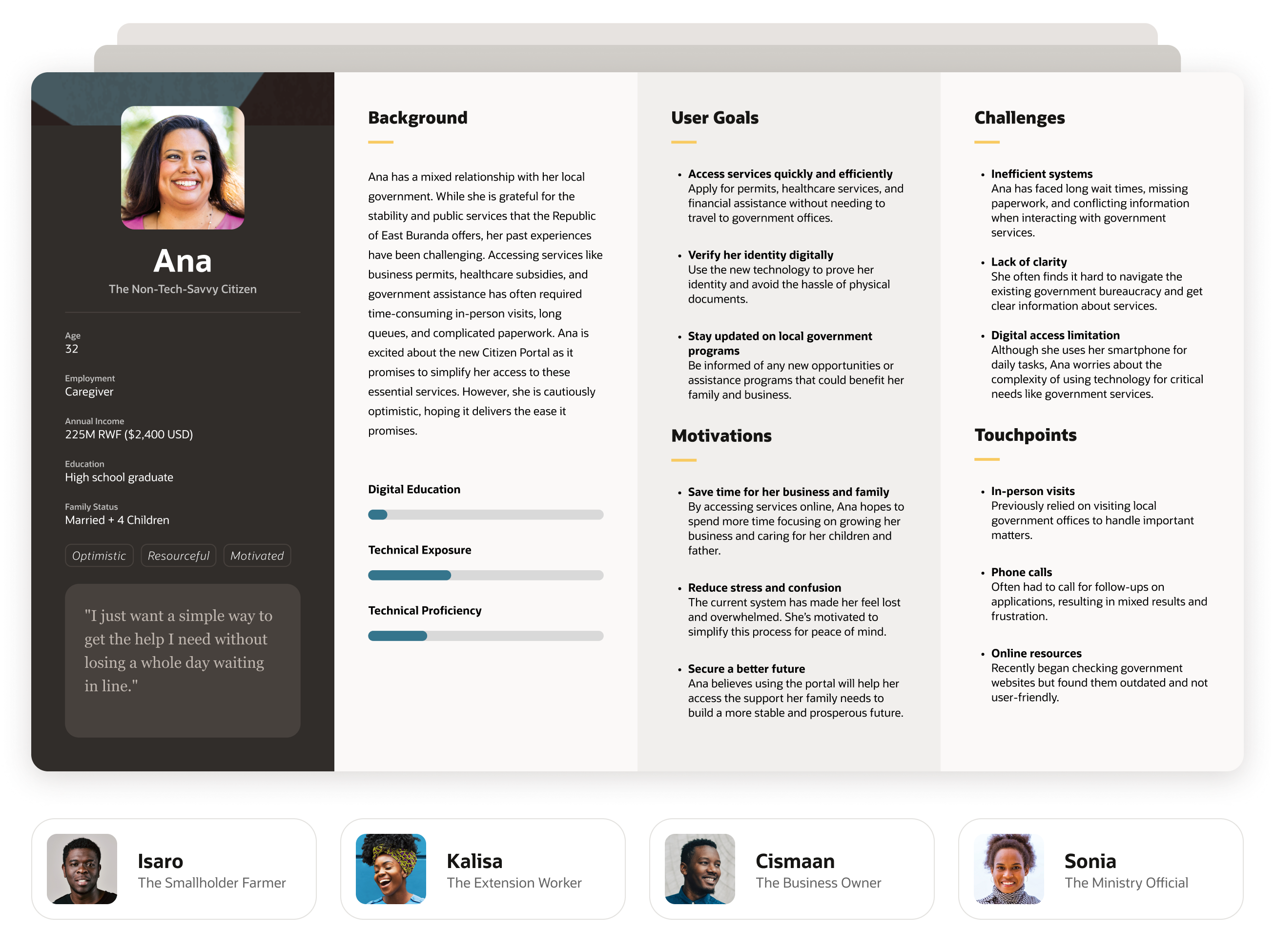
Digital ID
User Goal
Citizens want an efficient and secure way to prove the authenticity of their identity so that they can obtain private and public services.


Final Concept
I created high fidelity mockups and prototypes detailing the final user experience.

Digital Locker
User Goal
Citizens want an efficient and secure way to share their private information with trusted sources so they can obtain private and public services.
Screen Flows
I created a series of screen flow diagrams detailing the various use cases and scenarios that might exist e.g., business or government entities requesting your birth certificate, proof of residency, employment status, etc.

Final Concept
I created high fidelity mockups and prototypes detailing the final user experience.

Service Catalogue
User Goal
Citizens want quick and easy access to government services so that they can minimize time and effort spent on obtaining critical support, leading to a better quality of life.
Wireframes
I created multiple wireframe schematics that enabled us to explore UI variations and communicate rapid design decisions to developers in record time.
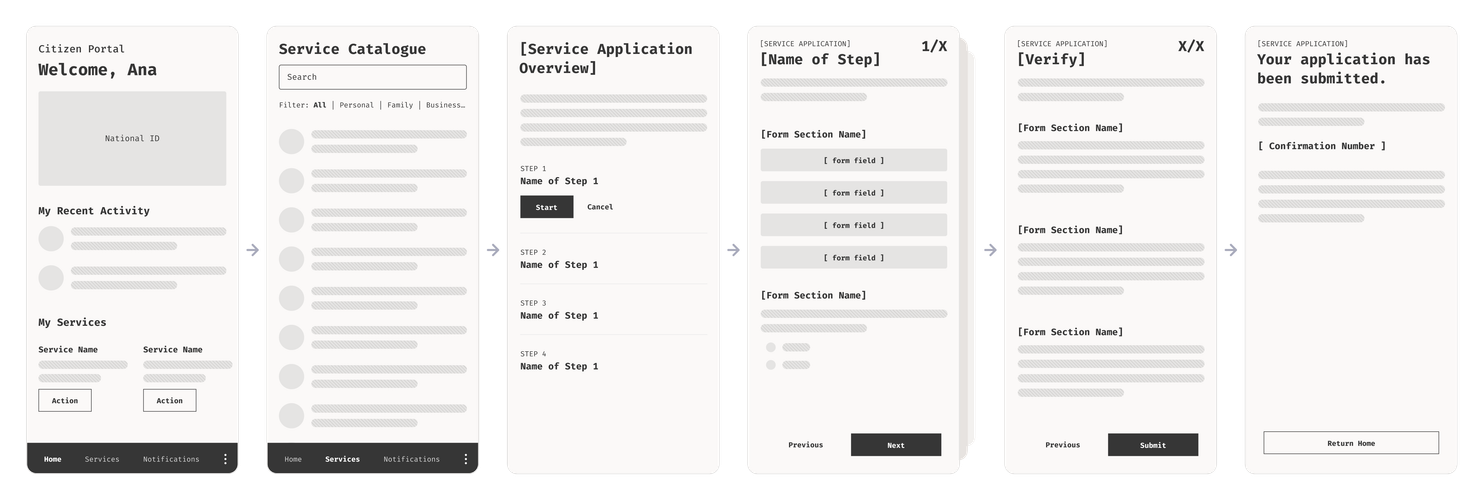
Final Concept
I created high fidelity mockups and prototypes detailing the final user experience.

Lessons Learned
- Storytelling was the most effective way to validate assumptions and hypotheses early.
- As a US citizen, it was clear I wasn’t the user and needed deeper insights to understand their needs, goals, and pain points.
- Clarifying team goals was key to achieving deliverables and will allow more time for this in future projects.
- Though not my first project with frequent pivots, it reminded me of the importance of flexibility in process and methods.


